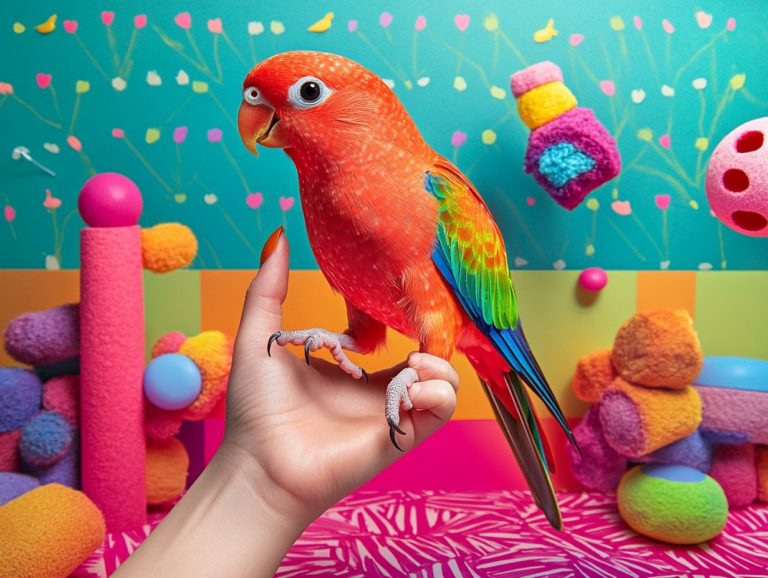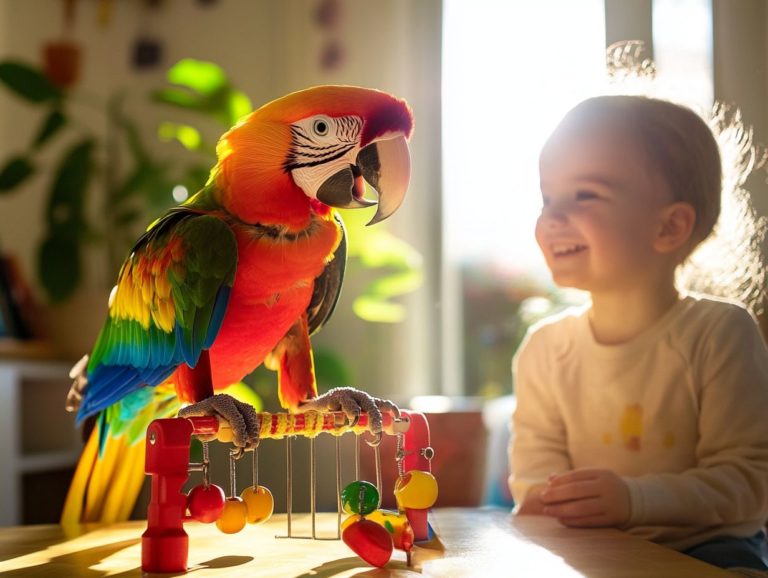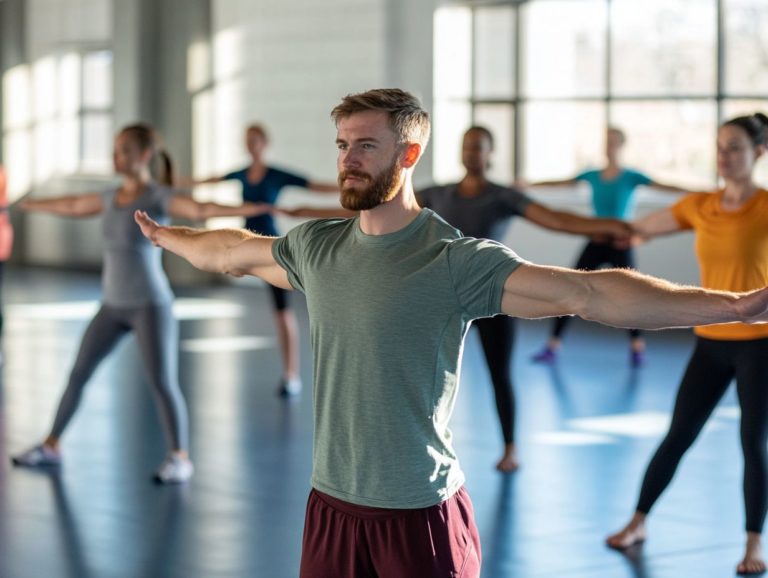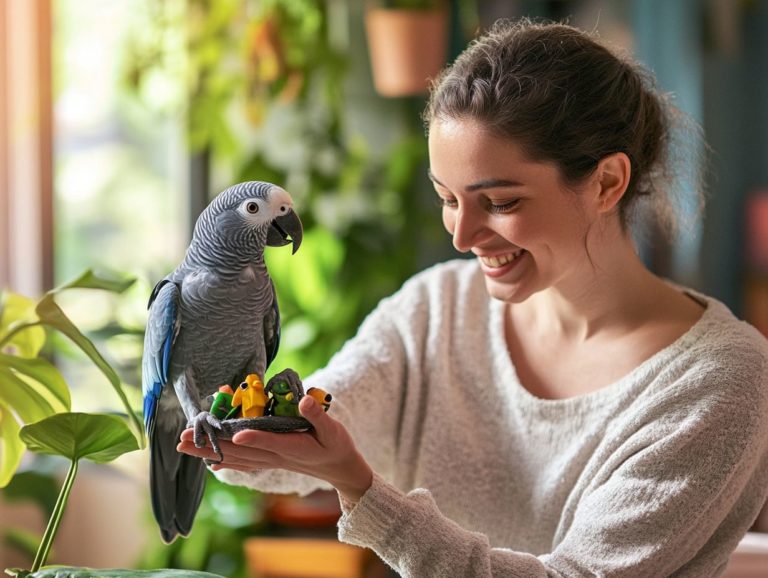The Benefits of Daily Training for Birds
Daily training is crucial for birds, providing a wealth of benefits that elevate their physical health and mental well-being. Consistent training not only strengthens the bond you share with your feathered companion but also enhances their behavior and offers vital stimulation.
Get ready to explore exciting training techniques that will transform your bond with your bird! This guide will help you set achievable goals and tackle the common challenges you may encounter on this journey.
Whether you re a seasoned bird owner or just beginning your adventure, this resource will arm you with the knowledge necessary for successful daily training.
Contents
- Key Takeaways:
- Understanding Daily Training for Your Bird
- Benefits of Daily Training
- How to Train Your Bird Daily
- Overcoming Challenges in Daily Training
- Frequently Asked Questions
- What are the benefits of daily training for birds, including Galah and Blue and Gold Macaw?
- How does daily training help improve a bird’s physical health, and what role do aerobic exercise and daily exercise play?
- Can daily training sessions help with a bird’s mental health?
- Does daily training help strengthen the bond between a bird and their owner?
- How does daily training improve communication between a bird and their owner?
- What are some tips for incorporating daily training into a bird’s routine?
Key Takeaways:
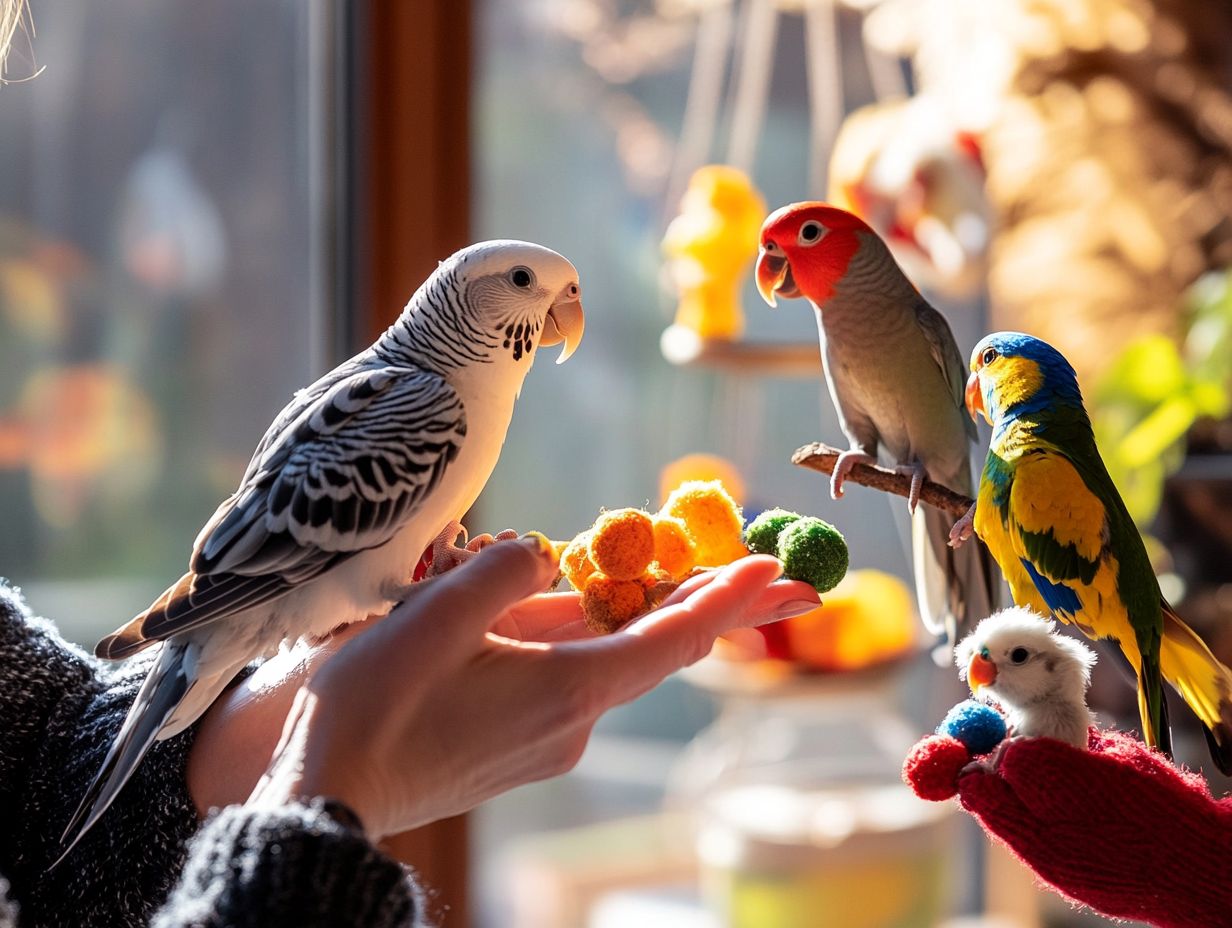
- Regular training sessions provide physical and mental stimulation for birds, keeping them active and engaged.
- Daily training helps strengthen the bond between birds and their owners, leading to a more fulfilling relationship.
- Consistent training can improve a bird’s behavior and obedience, making them easier to handle and interact with.
Understanding Daily Training for Your Bird
Daily training for your birds is a crucial practice that significantly enhances their well-being and behavior. This structured approach includes techniques like target training, clicker training, and hand feeding, all of which ensure your birds stay physically and mentally alert while deepening the bond between you and your feathered companions in places like Orlando, Florida.
By incorporating daily exercise routines, you not only help maintain their cholesterol and heart health but also open the door to teaching a variety of behaviors, making this an essential aspect of avian care.
Benefits of Daily Training
The benefits of daily training for birds extend well beyond mere obedience. They play a crucial role in enhancing both physical and mental stimulation, significantly contributing to the overall well-being of pet birds like the Congo African Grey and Galah. For more insights, explore the benefits of bird training.
This practice fosters better behavior, reduces the risk of heart disease, and helps manage cholesterol levels. By implementing structured exercise routines specifically designed for birds, you cater to their unique needs and personalities, ensuring they thrive in every aspect of their health.
Physical and Mental Stimulation
Physical and mental stimulation are essential elements of your bird’s daily training routine. By incorporating a variety of exercises especially exercises that get your bird moving, like flight exercises or climbing challenges you ll promote cardiovascular health while fostering resilience and agility.
These exercises can be seamlessly woven into playtime, encouraging your bird to actively explore their surroundings. When you combine mental stimulation with physical activity, you enhance their cognitive development, making it easier for them to learn new tricks and behaviors.
Using techniques like rewarding good behavior with treats and affection during training can further reinforce these benefits, creating a harmonious balance that nurtures both body and mind.
Bonding with Your Owner
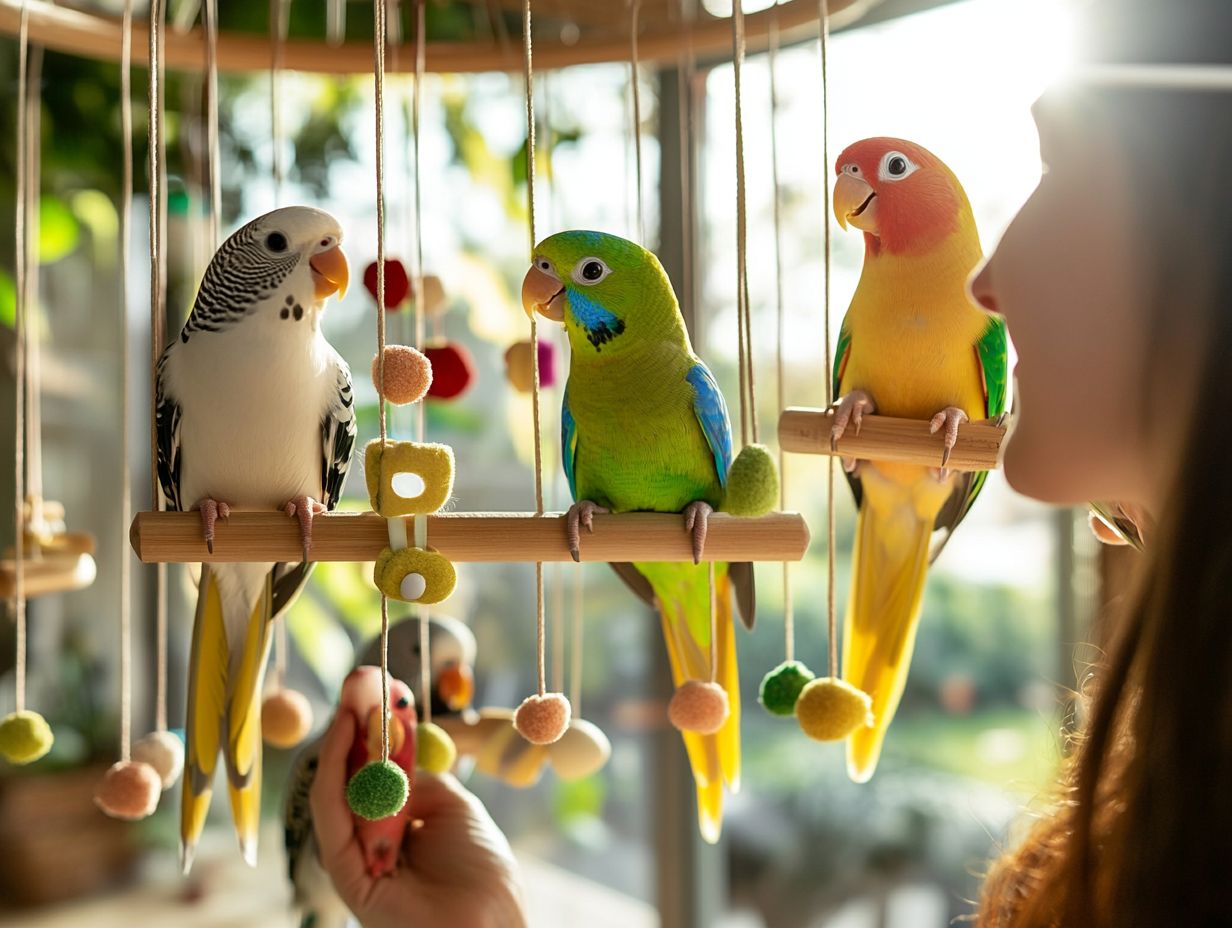
Bonding with your bird is a crucial element of ownership. You can enhance this connection through effective daily practices, such as clicker training and hand feeding. By engaging in these activities, you foster a trusting relationship, encouraging your feathered friend to mimic behaviors and interact positively during daily exercise sessions.
Incorporating playtime with toys and games can significantly strengthen the bond between you and your bird. For instance, providing puzzle feeders not only stimulates your bird s mind but also encourages problem-solving behaviors, creating a shared experience that reinforces trust.
Daily interaction whether through gentle talking, singing, or simply enjoying quiet moments together allows your bond to deepen as your bird learns to associate you with comfort and safety. Teaching new tricks or embarking on short outdoor adventures can also promote positive reinforcement, transforming your interactions into enjoyable and enriching experiences.
Start your daily training routine today to see amazing results!
Improving Behavior and Obedience
Improving behavior and obedience through daily training techniques is a fundamental goal for you as a bird owner. You often seek guidance from avian veterinarians to ensure you re using effective strategies. Techniques like clicker training and rewarding good behavior create a structured environment that encourages desirable behaviors while minimizing less favorable ones.
Establishing clear behaviors to teach is crucial; it provides a roadmap for you and your feathered companion. Consistent training methods reinforce these behaviors, making it easier for your bird to grasp what is expected of them.
Follow avian vet tips to customize your training for your bird’s unique needs. This not only enhances the bond between you and your feathered friend but also leads to lasting obedience.
Adopting these practices can transform what might feel like a challenging training experience into a rewarding journey for both you and your avian friend. Start training your bird today for a happier home!
How to Train Your Bird Daily
Training your bird daily requires a thoughtful strategy that incorporates various techniques, including target training and clicker training. These methods not only promote desired behaviors but also enhance your bird s physical and mental well-being.
By using this structured approach, you can set clear goals, integrate hand feeding, and create routines that are both enjoyable and beneficial for your feathered companion.
Setting Goals and Establishing a Routine
Setting specific goals and establishing a consistent routine is essential for your effective daily training. This approach allows you to create a structured environment that fosters learning and development for your bird. By pinpointing the behaviors you wish to teach, you can tailor your training techniques to meet your bird’s unique needs and personality.
Incorporating practical examples can elevate this process. For instance, if your goal is to teach your bird to step up onto your finger, practice this daily in short, manageable sessions, making adjustments based on your bird’s responses. Consistency is key training at the same time each day and using methods like rewarding good behavior with treats can help solidify the behaviors you want to instill.
Remaining observant and adaptable is crucial, as some birds may progress faster than others. A flexible approach will ensure that you keep your bird engaged and motivated throughout their training journey. Don t miss this chance to bond with your bird!
Training Techniques and Tips
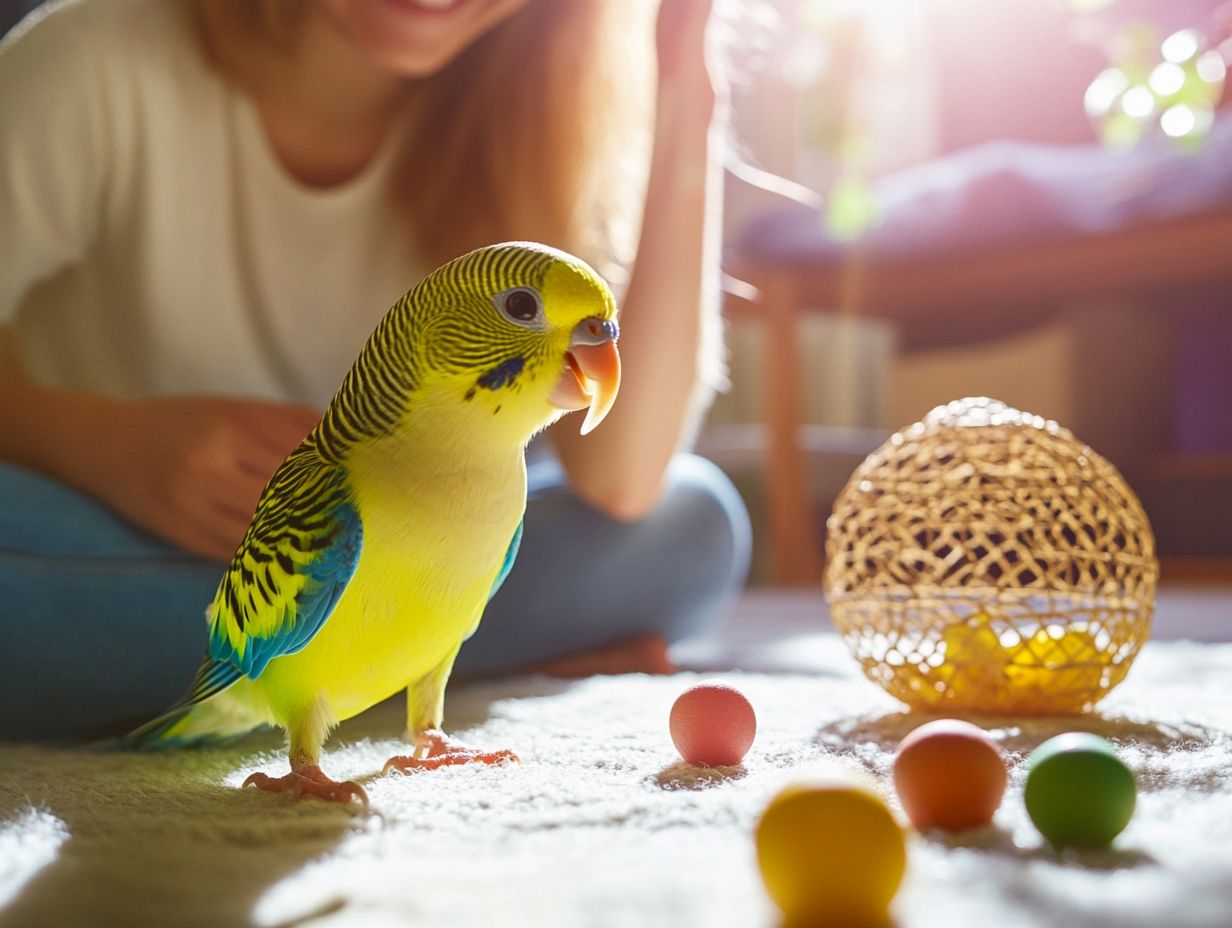
Utilizing effective training techniques like clicker training, hand feeding, and target training can greatly enhance your daily experience with your birds. These methods are crafted not just to improve obedience but also to engage them mentally and provide essential physical exercise.
By seamlessly incorporating these techniques into your regular routines, you can cultivate a rewarding environment that nurtures trust and strengthens the bond between you and your feathered companions.
For instance, clicker training operates on the principle of rewarding good behavior, allowing your birds to connect the sound of the click with desired actions, whether performing tricks or following commands. Hand feeding serves as an excellent opportunity for interaction, rewarding good behavior while fostering a sense of safety and partnership.
Target training where birds learn to touch a specific object encourages focus and can easily blend into playtime, making learning enjoyable and beneficial.
Each of these methods not only promotes positive behavior but also stimulates cognitive skills, enriching the overall well-being of your avian friends. Get started today and see the transformation!
Overcoming Challenges in Daily Training
Overcoming challenges in daily training is a familiar concern for bird owners, as each bird presents its own unique behavioral hurdles that call for tailored solutions.
By recognizing these challenges and consulting with avian veterinarians, you can implement effective strategies, such as target training and rewarding good behavior, to address specific issues. This approach not only enhances your bond with your feathered friend but also fosters a more harmonious environment for both of you.
Common Roadblocks and Solutions
Common roadblocks in your daily training sessions can significantly hinder progress, whether it s your bird s reluctance to engage or distractions from the environment. The first step to overcoming these challenges is identifying the underlying issues. Think about talking to a bird doctor who can provide tailored advice and alternative training techniques.
If your bird is uninterested, change the rewards or adjust the training schedule to times when your feathered friend is naturally more active. Environmental distractions, like loud noises or the antics of other pets, can disrupt focus. Creating a quiet, dedicated training space can greatly enhance concentration.
Maintaining motivation is crucial; acknowledging even the smallest successes will help keep spirits high. By adapting your training strategies based on your bird s responses, you can foster a personalized approach that promotes a positive learning environment.
Frequently Asked Questions
What are the benefits of daily training for birds, including Galah and Blue and Gold Macaw?
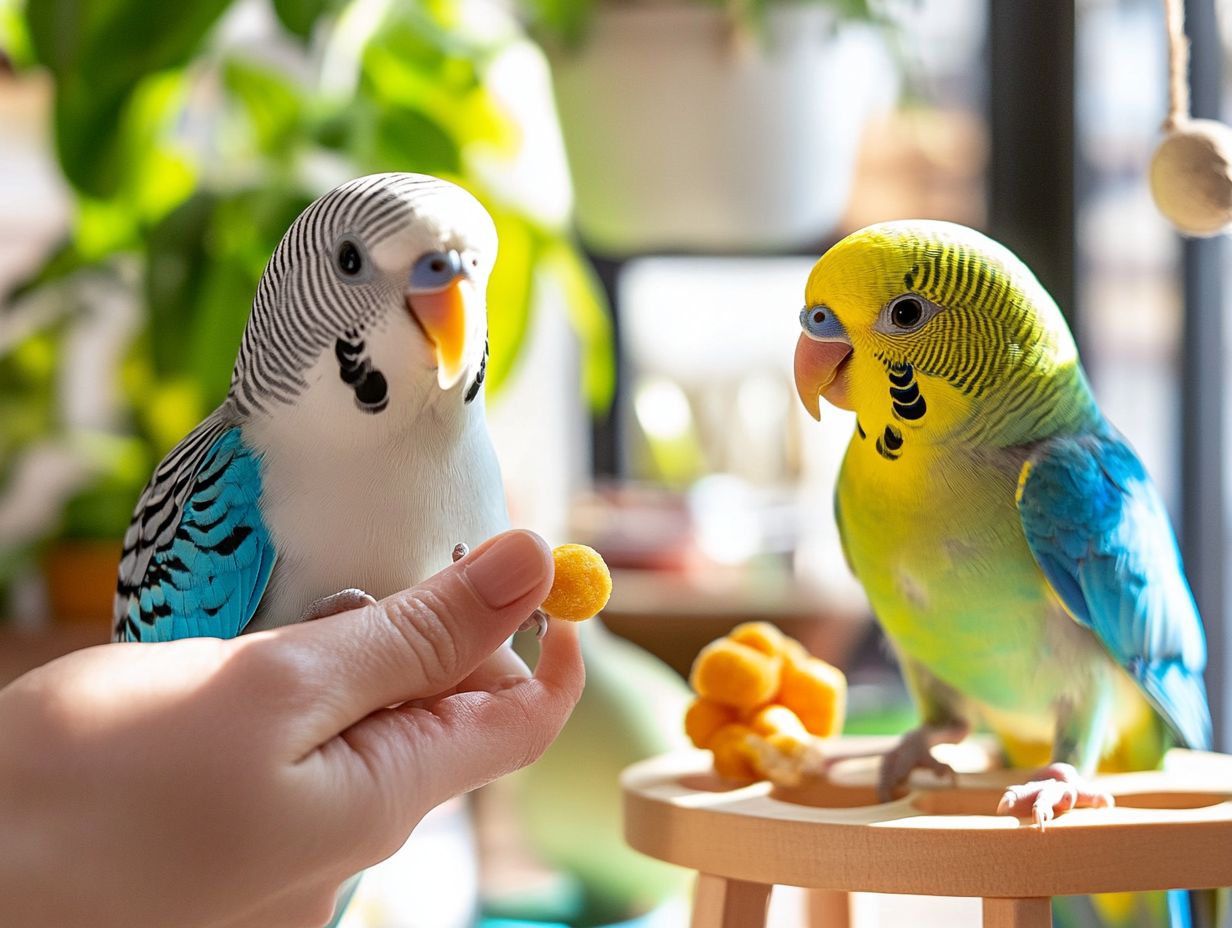
Daily training can transform your bird’s life! It improves physical and mental health, increases the bond with their owner, and enhances communication and understanding between the bird and their owner. To learn more about effective methods, check out the best training techniques for pet birds.
How does daily training help improve a bird’s physical health, and what role do aerobic exercise and daily exercise play?
Regular training sessions help birds stay active and maintain a healthy weight. They also improve muscle strength and coordination, contributing to their overall health and well-being, as highlighted in the benefits of enrichment for bird health.
Can daily training sessions help with a bird’s mental health?
Yes! Daily training provides mental stimulation, prevents boredom, and can even address behavior issues such as excessive screaming or feather plucking.
Does daily training help strengthen the bond between a bird and their owner?
Absolutely! Daily training sessions allow for one-on-one interaction, strengthening the bond and trust. It also helps the bird view their owner as a source of positive reinforcement, building a positive relationship.
How does daily training improve communication between a bird and their owner?
Through daily training, a bird learns to understand and respond to cues and commands from their owner. This enhances communication and allows for better understanding.
What are some tips for incorporating daily training into a bird’s routine?
- Get started right away with short training sessions to see results fast!
- Incorporate hand feeding and exercise for birds to keep them engaged.
- Use positive reinforcement, such as treats or praise, to encourage and reward desired behaviors.
- Most importantly, make training sessions fun and engaging for both you and your bird!
Ready to transform your bird s training? Start today!


